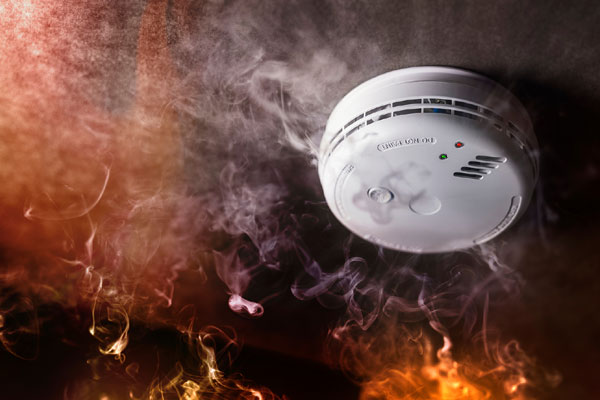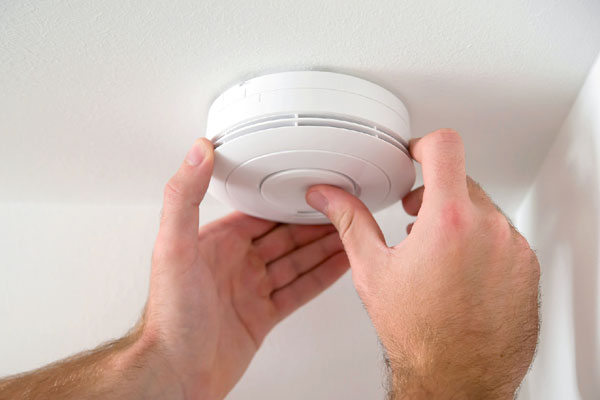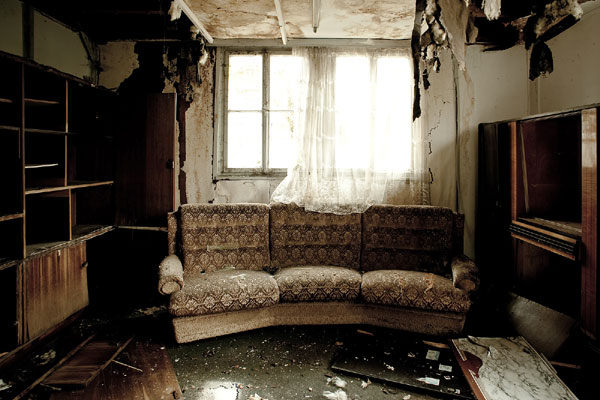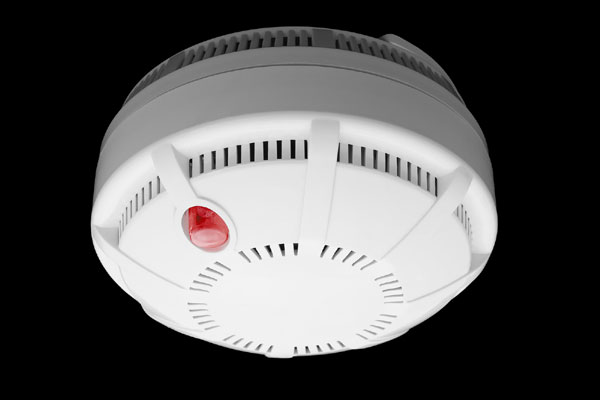



Fire Extinguisher Maintenance Certificates
All domestic premises require fire detectors for the safety of their occupants. Premises such as rental property or social housing are covered under legal regulations which make the provision, maintenance and testing of fire detection equipment mandatory. Survey JEM™ makes the process of testing, recording results and issuing a certificate as quick and easy as possible.
Survey JEM™ benefits from over twenty years of knowledge and experience developing online surveying and reporting software. Information collected during the testing process is recorded in real time and displayed in an easy to use layout. When the engineer issues the certificate the person responsible for the property can be automatically notifed by email. They can accept the certificate online with a few clicks or, if they prefer, they can access fire maintenance certificates and reports for a whole property portfolio.
Fire alarm testing, servicing and maintenance
If there's one thing that most homeowners fear, it's a fire. Not only can fire destroy your home, it can rob you of all your prized possessions and may even kill you and your family. So, when it comes to fire safety, a good, well maintained fire alarm system is a very wise investment indeed.
It goes without saying that a good fire alarm system will detect and identify fires in their earliest stages then alert everyone to the danger. Getting this vital early warning will provide precious extra time to evacuate the house, saving lives. Not only will it help to keep you and your loved ones safe, it will also give you to alert the fire and rescue services earlier reducing the probablility of untold damage to your home. But even the best fire alarm system can develop faults over time. Without the right testing, servicing and maintenance, these faults might not be identified and fixed in time. At the least this could lead to false alarms and, in the worst case scenario of an actual fire, loss of life of a family member.
Domestic fire alarms are not governed by law, or are they?
Many people believe that unlike a commercial fire alarm system, the domestic equivalent is not regulated under fire laws, but they can malfunction just as easily as their commercial counterparts.
Some people even think that the only time they could risk prosecution because of a faulty domestic fire alarm system would be if it repeatedly activated, causing a noise nuisance to neighbours. The Environmental Health Department of your local council could potentially order you to have a faulty fire alarm system serviced, fixed or removed if it became a noise nuisance, failure to do so, may render you liable to prosecution.
However, if you have a domestic fire alarm system, it is there to keep you and your loved ones safe, so allowing it to fall into a state of disrepair really doesn't make any sense.
Much like having a chimney sweep call once a year to keep your chimney safe and clean, a service engineer should be engaged to ensure any fire alarm systems are in full working order. It's all about the safety and security of your family after all and this simply isn't worth gambling with.
Domestic fire alarms: The law
There are actually different Fire Building Regulations across the United Kingdom, with England and Wales, Scotland and Northern Ireland all utilising different documents and requiring different levels of protection for their domestic properties.
Each set of fire regulations covers a wide range of safety requirements, including means of escape, internal fire spread and access for the fire and rescue service.
Building Regulations Document B
These fire regulations cover newly built homes, materially altered houses, loft conversions and specific building extensions for standard dwellings.
All dwellings should be provided with an alarm system to at least Grade D1/D2, Category LD3. What this actually means is that there must be an installation of mains-powered alarms with an essential backup power supply within the escape routes of the property; these are usually hallways and landings. The Regulations also require a heat alarm to be installed in kitchen areas where the kitchen is not separated from the circulation space or stairway by a door.
The Regulations state that optical smoke alarms are usually better suited for installation in hallways and landings that are adjacent to kitchens. For kitchens, the Regulations recommend heat alarms. All alarms should be interconnected to ensure the occupants can hear them throughout the property if an alarm is activated. The Regulations refer to the British Standard BS 5839-6:2019 and suggest that an alarm system is installed in line with these standards.
Domestic fire alarm testing, servicing and maintenance is vital
A simple and inexpensive servicing routine of your domestic fire alarm system ensures that it is working as it should. This is probably the most important reason to have a fire alarm system serviced and maintained on a regular basis. By ensuring the system works effectively, you will be protecting your home and family from the horrors of a fire. Should there be an activation of the fire alarm, you will have enough time to get everyone out and to a place of safety, while having enough time to contact the emergency fire and rescue services too. The sooner the fire and rescue service arrives, the sooner any fire will be brought under control before it causes extensive damage to your home and property.
Regular testing can identify fire alarm faults
Occasionally the fire alarm service won't confirm functionality at all, but alert the service professional to a critical fault with the alarm. Only when such faults are identified can they be fixed.
Regular testing can reduce false alarm activations
As already stated, false alarm activations can be irritating for you, particularly if they happen at night when you and your family are snoozing peacefully in your beds. However, what may prove irritating to you may become absolutely infuriating for your neighbours, depriving them of their sleep or the quiet enjoyment of their property. This in turn can result in long, drawn out neighbour disputes, making everyone's life a misery.
Regular testing ensures compliance
In the United Kingdom, the fire regulations stipulate that anyone who is an owner, employer, landlord, occupier, or in an otherwise responsible role, must provide adequate building fire safety. Regular testing and maintenance of fire alarms will ensure your home meets this legal requirement.
Regular testing could reduce insurance costs
Lack of maintenance of a fitted fire alarm system could mean that in the event of a fire, your insurance may not be valid; a regular maintenance schedule may even reduce the premiums you pay. Maintaining a regular testing and servicing regime will ensure you are adequately covered should you be unfortunate enough to become the victim of a fire.
The life of a fire alarm
Fire alarm systems generally have a lifespan of around ten to fifteen years. That's why it's important to stick to a maintenance and testing schedule, as you will be able to identify when your system needs replacing. The older the system, the more likely it is to require maintenance. Also, as technology advances, older systems may not be providing the best level of protection for your home.
How often should you test a fire alarm?
Fire regulations in the United Kingdom do not actually set out a specific timescale for fire alarm systems to be serviced but call for adequate maintenance instead. This essentially means those business owners, landlords, and other responsible people to have their alarm systems professionally tested at least twice a year.
Many council and housing association tenants, as well as private renters will have their landlord arrange annual testing and servicing routines for fire alarm systems, smoke alarms, carbon monoxide detectors and gas appliances such as boilers.
Further information
If you would like to know more or are interested in trying Survey JEM™ we would be happy to help. Phone us on 01953 425 932, email us at info@surveyjem.co.uk or fill in our contact form and we will be in touch as soon as possible.
Hashtags: #FireSafety #DomesticFireDetectionCerts
















